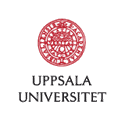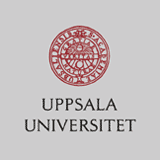Research Ethics for Science and Technology, 2 credit (nr 2 Autumn semester)
| Kursnummer | 32,2 |
| År | 2020 |
| Typ | Compulsory |
| Spår | - |
| Max antal deltagare | 24 |
| Sista ansökningsdag | 2020-06-08 |
| Språk | En |
| Kursansvarig | Stefan Eriksson |
| Institution | Centre for Research Ethics & Bioethics, Department of Public Health and Caring Sciences |
| Besöksadress | BMC, Husargatan 3 |
| Postadress | Box 564, 751 22 Uppsala |
| Datum | See description |
| Lokal | Premises at BMC (details will be published later) |
| Kurslängd | 20hrs during 3 weeks |
| Kursrapport | |
| Kursplan |
Beskrivning
Requirements:
Registered for graduate studies on Science and Technology Faculty, Uppsala University
Selection procedure
If there are more applicants than places on the course, the selection is made on the date of application. Exceptions to this selection is given to applicants who needs to complete the course this semester in order to complete their degree. These applicants will be given priority.
Note the importance of claiming priority and to specify the planned date for the exam in your application!
Preliminary schedule
8-10/9, 15-17/9, 22-24/9
Inlärningsmål
The course will give the students a general knowledge about both ethical problems in research and different views on what constitutes ethics and science respectively. The course also aims at improving the student’s capacity to reflect on his or her own preconceptions and values in regard to research ethical problems and the student’s ability to mobilise a sense of responsibility when faced with research ethical problems. After completing the course, the student is expected to be able to:
• Identify and characterize research ethical problems and solutions
• Identify interests and concerns relevant to involved parties
• Apply those skills to their own research
Innehåll
The course consists of lectures, seminars, and group work. Active participation in seminars is expected
Some of the topics studied during the course are:
• Ethical theories and norms
• Critical discussion of guidelines and laws that regulate research
• Fraud and misconduct in science
• The ethics and value of technology and scientific progress
• Dual use and responsibilities of researchers
• Professional ethics
• Ethical aspects of research
• Intellectual ownership
• Authorship and scientific writing issues
• The scientist in society
Examination
The examination consists of a group presentation and the writing of an individual report
Litteratur
Swedish Research Council. Good Research Practice. Stockholm, Swedish Research Council 2011. Download (or order) from the Swedish Research Council (www.vr.se) or download from CODEX (www.codex.uu.se)
Articles
Lärare
Stefan Eriksson
Associate Professor Research Ethics
Centre for Research Ethics & Bioethics, Department of Public Health and Caring Sciences
Kontakt
Nina Carlsson
Course Administrator
Department of Public Health and Caring Sciences
nina.carlsson@pubcare.uu.se
018-471 62 48


